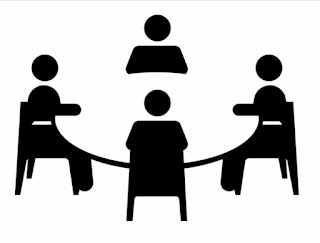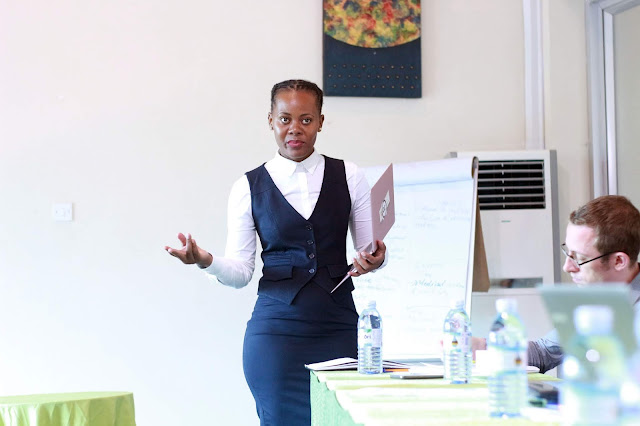Institutional sexism and criminalising feminist dissent in Uganda
A few months a go a Ugandan court dismissed a case of cyber harassment and offensive communication against a one Brian Isiko. A man who had harassed and simultaneously sent offensive messages to a female member of Parliament. When the man was committed to prison upon his own plea of guilt initially, the public (largely men) were up in arms. They claimed Isiko was being jailed for 'sending love messages' 'sweet talking an MP', that women were too much, a member of parliament was using her power to abuse a young man with a love interest et al. Indeed it was not long before a group of men including a leading Kampala pastor paid lawyers to appeal his sentence and got him bail pending a retrial of the case. The media went ahead to hound the woman member of parliament till she stopped showing up at the trials and the case was dismissed eventually.
Juxtapose it with scenarios where women including a one Sheena was arrested and detained at least overnight for naming and shaming men accused of raping and sexually harassing women in public spaces especially night clubs. I am aware of another case, at the Buganda Road Chief Magistrate's court, where women who filed a sexual violence case against the Director of Musana Community Development Organisation languish in Kigo prison and their family suffers daily harassment as agents of Musana keep asking them to tell their relatives in jail to with-hold the charges against that director if they are ever to be free again.
This month, former female students of Kings College Budo decried the pain and torture the institution and their male colleagues subjected them through cat calls, body shaming, slut shaming all because they were females pitched in the same classes as their male colleagues.
These are not un common discussions in our Ugandan community. We see them in churches where women are relegated to the 'other' supportive roles. At work places women occupy and many times are asked to assume the 'care' roles in the office as opposed to the bossy more male oriented roles.
Ugandan activists have cried their voices hoarse for inclusion of women in panels discussing Uganda's future and yet it is very common to see institutions still fronting all male boards, manels and oh my even in traditionally female spaces - at least a man ought to be pushed to voice how women should be leading that space!
I have never stopped wondering why the Uganda Law Society (ULS) insists that the Female Lawyers' Committee ought to have a male representative (sometimes called champion) where female practicing lawyers constitute just slightly over a third of the ULS membership.
Need i mention the silence we always bear when we see the head of UN women is a man? or the head of the Gender ministry is a man? and that the offices that receive, record and investigate sexual violence cases are men whose initial inclination to these cases is that of a dismissive attitude, accusatory tones towards victims (mostly women and girls) and more often than not are bribed by peers to abandon the cases?
This is sexism that is institutional. It is deliberate and calculated into policies, practices of institutions and even in our homes to discriminate against women.It becomes very difficult to contend with sexism because it is closely nit even in our languages and how culture defines women as a whole.
It is normalised and reinforced by families (most powerful institution and first point of contact for every person). Ugandans assume it is okay to abuse women, because they learn that in homes, it is okay to beat girls because men in homes do that, it is okay to silence girls speaking against sexual violence BUT uploud boys' masculinity when they impregnant underage girls of reproductive age.
If we are to end sexism and violence in our society today, the home - is a place we need to be deliberate in targeting. We all have a role in this.
Juxtapose it with scenarios where women including a one Sheena was arrested and detained at least overnight for naming and shaming men accused of raping and sexually harassing women in public spaces especially night clubs. I am aware of another case, at the Buganda Road Chief Magistrate's court, where women who filed a sexual violence case against the Director of Musana Community Development Organisation languish in Kigo prison and their family suffers daily harassment as agents of Musana keep asking them to tell their relatives in jail to with-hold the charges against that director if they are ever to be free again.
This month, former female students of Kings College Budo decried the pain and torture the institution and their male colleagues subjected them through cat calls, body shaming, slut shaming all because they were females pitched in the same classes as their male colleagues.
These are not un common discussions in our Ugandan community. We see them in churches where women are relegated to the 'other' supportive roles. At work places women occupy and many times are asked to assume the 'care' roles in the office as opposed to the bossy more male oriented roles.
Ugandan activists have cried their voices hoarse for inclusion of women in panels discussing Uganda's future and yet it is very common to see institutions still fronting all male boards, manels and oh my even in traditionally female spaces - at least a man ought to be pushed to voice how women should be leading that space!
I have never stopped wondering why the Uganda Law Society (ULS) insists that the Female Lawyers' Committee ought to have a male representative (sometimes called champion) where female practicing lawyers constitute just slightly over a third of the ULS membership.
Need i mention the silence we always bear when we see the head of UN women is a man? or the head of the Gender ministry is a man? and that the offices that receive, record and investigate sexual violence cases are men whose initial inclination to these cases is that of a dismissive attitude, accusatory tones towards victims (mostly women and girls) and more often than not are bribed by peers to abandon the cases?
This is sexism that is institutional. It is deliberate and calculated into policies, practices of institutions and even in our homes to discriminate against women.It becomes very difficult to contend with sexism because it is closely nit even in our languages and how culture defines women as a whole.
It is normalised and reinforced by families (most powerful institution and first point of contact for every person). Ugandans assume it is okay to abuse women, because they learn that in homes, it is okay to beat girls because men in homes do that, it is okay to silence girls speaking against sexual violence BUT uploud boys' masculinity when they impregnant underage girls of reproductive age.
If we are to end sexism and violence in our society today, the home - is a place we need to be deliberate in targeting. We all have a role in this.


Comments
Post a Comment